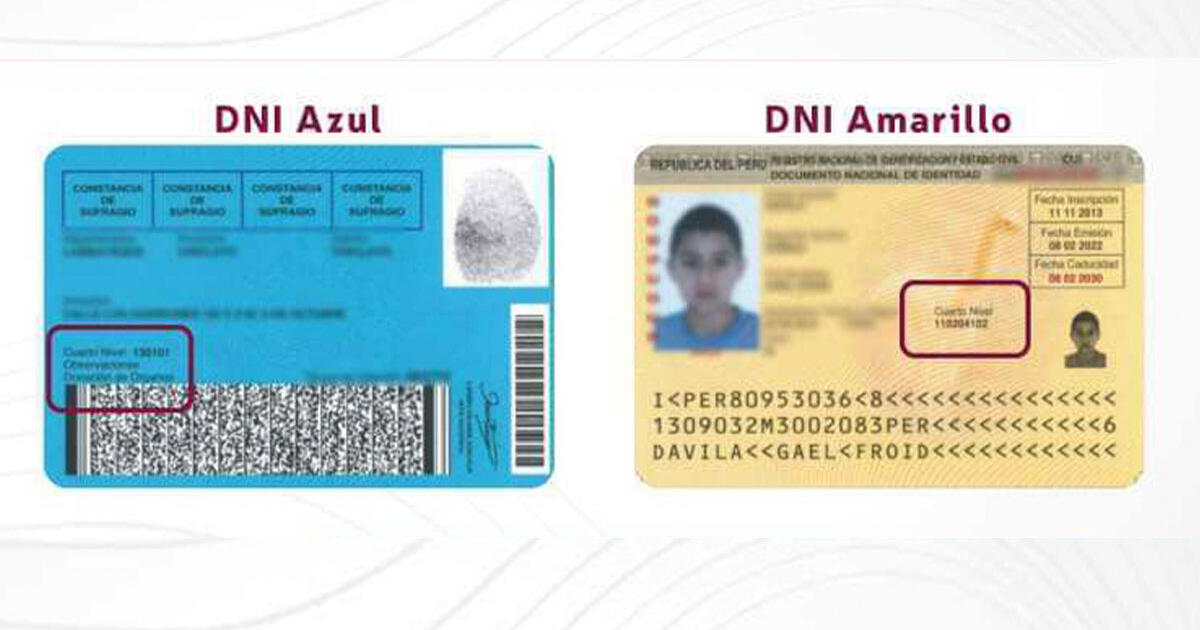El Documento Nacional de Identidad (DNI) es el documento primordial que todo peruano debe tener y cargar, pues este es nuestra carta de presentación para todo tipo de trámite o simplemente identificarse. Este documento emitido por el Registro Nacional de Identificación y Estado Civil (Reniec) tiene varios números y códigos, los cuales muchas veces causa confusión a los usuarios.
Una muestra de ello es el denominado "cuarto nivel", una serie de códigos que aparece en la parte posterior del DNI. Para algunos le parecerá algo insignificante esta serie de códigos, pero estos en realidad son de suma importancia. A continuación conoce para qué sirven estos números.

PUEDES VER: DNI: pasos para renovar tu documento vía web desde el exterior - LINK
¿Qué significa el cuarto nivel en el DNI?
Al referirnos al "cuarto nivel", esto hace referencia al código de ubicación geográfica, que también es conocido como ubigeo del domicilio el cual se registró en el DNI, este se añadió toda la información relativa a los centros poblados de acuerdo a la Ley Nro. 31079.
¿Para qué sirve el cuarto nivel del DNI?
Esta serie de números permite identificar la ubicación de un determinado centro poblado, incluido las localidad que aspiran a ser nuevos distritos. Esta información (nacimiento y domicilio) será usada con fines electorales.
¿Cómo actualizar el dato de ubigeo en el DNI?
El titular de la inscripción debe acercarse a un local, agencia o campaña itinerante del Reniec cumpliendo con el pago de la tasa y demás requisitos establecidos en el TUPA del entre registral.
En el portal oficial del gobierno peruano se menciona lo siguiente: "En caso la comunidad beneficiaria del nuevo distrito requiera gratuidad para el trámite de actualización del dato de ubigeo en el DNI, el presupuesto para este beneficio debe contemplarse desde la propuesta de creación de nueva categoría geográfica y cambios de demarcación territorial".
Cabe señalar que este código aparece tanto en los DNI azules (mayores de edad) como en los amarillos (menores de edad).

